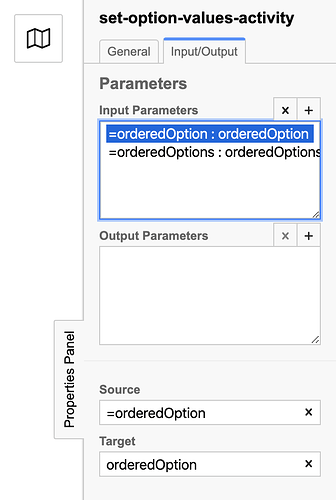Hi,
I use multi-instance call activities and subprocesses quite a bit in Camunda, and I have read the Zeebe documentation for this here: Zeebe | Camunda Platform 8 Docs.
Something seems to work differently with Zeebe/FEEL because I can’t get the multi-instance subprocess to recognize the input element. I have tried a few different configuration options, but can’t find the correct one. It finds the input collection, but claims,
“failed to evaluate expression ‘{orderedOption:orderedOption,orderedOptions:orderedOptions}’: no variable found for name ‘orderedOption’”
I am doing this in the job worker:
List orderedOptions = (List) variablesMap.get(“orderedOptions”);
Option orderedOption = (Option) variablesMap.get(“orderedOption”);
I am assuming that Zeebe knows how to create the current element, “orderedOption” in this case, per the documentation:
“In order to access the current element of the inputCollection value within the instance, the multi-instance activity can define the inputElement variable (e.g. item ). The element is stored as a local variable of the instance under the given name.”
I am sure that it is something fundamental that I don’t yet see, but I am attaching two screen shots in the hopes that someone has the time to take a look.
Regards,
Ken

